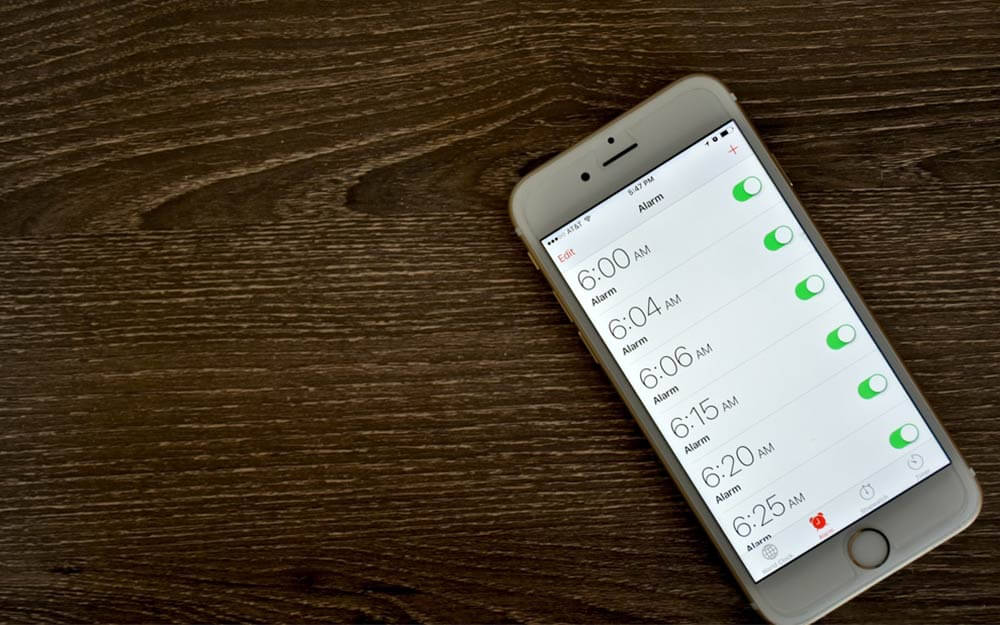Why is snooze 9 minutes?
The snooze button is our greatest friend in the morning, and the alarm clock – our greatest enemy. Somehow, the alarm wins, especially if we have some important business to do in the morning or we just don’t want to feel guilty all day afterward. However, there are times when the snooze button wins and we end up going back to sleep for more than 9 minutes, or, if you want, for 9 minutes multiplied by 5? That’s not a real performance. Let’s say 10. Speaking of 9, why does the snooze button automatically give you just 9 minutes of more sleep. That’s a pretty bizarre random number. Why not a more round number, like, say 10? Is there more to this 9?

Why is snooze 9 minutes?
Snooze is 9 minutes because back in the days of mechanical clocks it was really hard to set the gears to exact 10-minute snooze time. So, to make sure it didn’t get over the threshold of 10 minutes, they had aimed for less than 10 minutes. And that was it. In the 50s, there was no way to reset the snooze time yourself. You would only snooze for 9 minutes, more or less.
A 9-minute snooze is kind of a tradition now. iPhones used to come with an automatically-set 9-minute snooze button also. However, users were allowed to adjust that time any way they saw it fit.
However, there’s another theory that says the 9-minute-snooze comes from the era of the hybrid-electric clocks with that roll-over flip display. Although not as popular as the first one, this theory suggests that the only way they could have placed the snooze function was on the last digit of the minute column. This way, any time that number came up again, the alarm would be triggered. So, that’s a nine. If they had put it on a “0” from a “10”, the alarm could have come out irregularly after the snooze. This theory also makes sense, to a degree.
Does snooze help after all?
Although snooze might look like the best savior on impossible mornings, researchers suggest that it will disrupt your sleep so badly that you would actually wake up feeling dizzier than if you had woken up on the first alarm. For this matter, the snooze button might just be the worst invention ever.
You might have actually felt it yourself, that fragmented, disturbed sleep caused by hitting the snooze button multiple times. The truth is, 9 minutes is not enough to go back to that relaxing, refreshing deep sleep that is good for our body and especially for our brain. No, the sleep provided by that 9-minute snooze will just be a troubled phase for our brain and could actually make matters worse.
Hitting the snooze button might become a habit
Just as with almost anything, doing something for long enough might turn that something into a habit. And there are good habits and bad habits. The snooze button is definitely a bad habit because interrupted sleep is bad for your body.
If your body is actually begging for those extra minutes of sleep in the morning, then it means you’re actually not getting enough rest during the night. The snooze button is not the solution. Getting more and better overall sleep is. So, if the snooze button seems like the most addictive thing in the morning, you should consider adjusting your bedtime and wake up time so that you will get enough sleeping hours to feel refreshed and function better.
How to get better sleep at night and feel refreshed
Well, there’s no real recipe to achieve this, but there are certain valid habits that could help you. Researchers from the Journal of Neuroscience have discovered that spending more time in REM help decrease any brain activity related to fear during the day. This means better REM sleep will get you more resistance to trauma or other health issues related to sleep.
So, how to get better sleep and feel rested all throughout the day? These 5 steps might help:
- Only do boring activities before bed, like chores or just relaxing around
- Adjust the temperature to around 60-68 degrees Fahrenheit
- Your bed should be the right place you actually want to sleep; try adding some blackout curtains or comfortable bedding and pillows, clean sheets and so on
- Don’t hit the snooze button
- Stick to a consistent sleep schedule so your body can get used to it
